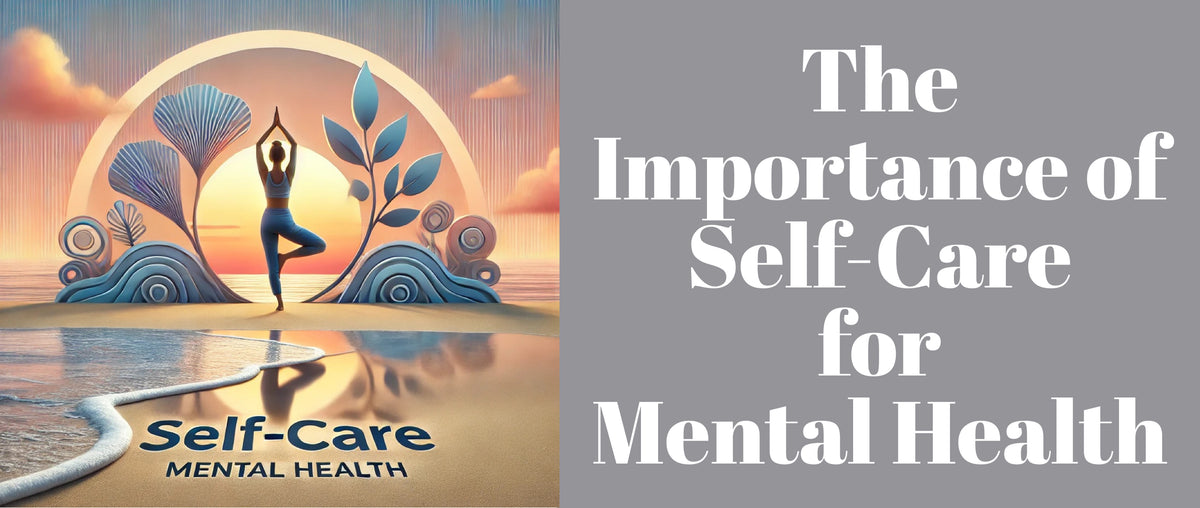The Importance of Self-Care for Mental Health
In today's hectic world, self-care is more crucial than ever. It refers to the intentional actions one takes to care for their physical, emotional, and mental well-being. These actions may be simple but have a significant impact on one's mental health. Whether it's eating healthy foods like plant based cheese , engaging in daily exercises, or setting boundaries, self-care is key to maintaining balance in life.
One of the most misunderstood aspects of self-care is its role in mental health. It's not just about pampering yourself with luxuries but about performing essential tasks like getting adequate rest, nourishing your body with nutritious food, and keeping your stress levels in check. Simple actions, such as enjoying your favorite meal with mozzarella cheese online or unwinding with a relaxing activity, can significantly improve your mood and reduce anxiety.
Self-care isn’t a luxury; it is necessary for sustaining mental health. In fact, individuals who routinely practice self-care are more resilient to stress, exhibit fewer symptoms of mental health issues like depression or anxiety, and enjoy a higher quality of life. With an increase in the prevalence of mental health disorders, practicing intentional self-care has become essential for promoting mental wellness and emotional balance.
Key Takeaways
- Self-care helps improve mental well-being by reducing stress and anxiety.
- Incorporating activities like cooking with vegan cheese or taking regular breaks helps prevent burnout.
- It can be an important aspect of managing mental health disorders and maintaining overall balance.
The Link Between Self-Care and Mental Health
The relationship between self-care and mental health is interdependent. Engaging in consistent self-care practices supports emotional stability and mental resilience, reducing the risk of developing mental health disorders. Think of it as maintenance for your mind, much like eating healthy foods like Vegan products or Fat Free Butter maintains your physical body.
Mental health refers to a state of well-being in which individuals can cope with the normal stresses of life, work productively, and contribute to their community. When mental health is compromised, it can lead to debilitating conditions like depression, anxiety, or burnout. Self-care acts as a preventive measure by fostering mental resilience and emotional balance.

Examples of how self-care directly impacts mental health include:
- Exercise: Engaging in physical activity, whether it's a walk around the park or a yoga session, releases endorphins, also known as the happy hormones. Exercise reduces cortisol levels (stress hormone), leading to better mood regulation. Even simple activities like preparing a meal using best mozzarella cheese for pizza can be incorporated into daily routines to engage in mindful practices.
- Balanced Nutrition: Incorporating nutritious foods into your diet, such as Unsalted Butter, vegan cheese, or Cashew Butter, plays a significant role in mental health. Studies show that certain nutrients, such as Omega-3 fatty acids, help boost brain function and mood. Nourishing your body with unprocessed and healthy foods leads to better mental clarity and emotional well-being.
- Sleep Hygiene: Adequate sleep is another critical factor in mental health. People who suffer from chronic stress or anxiety often experience sleep disturbances. Establishing a regular sleep routine, free from distractions such as blue light from screens, can restore emotional balance and cognitive function. A calming routine before bed, like a warm drink or a snack made with Garlic Butter, can further promote better sleep quality.
How Self-Care Activities Improve Mental Health
| Activity | Impact on Mental Health |
|---|---|
| Exercise (e.g., walking, yoga) | Increases endorphin production, reducing stress. |
| Balanced diet (e.g., vegan foods) | Enhances mood, supports brain function. |
| Quality sleep | Improves cognitive function, reduces anxiety. |
| Mindfulness practices | Lowers cortisol, improves emotional resilience. |
| Hydration (e.g., herbal teas) | Supports concentration, prevents irritability. |
Practical Self-Care Tips for Mental Health
The good news is that self-care doesn't have to be complicated. Simple, everyday actions that you already enjoy can be considered self-care, especially when done mindfully. Below are some practical tips that help maintain mental health:
- Exercise: Incorporate at least 30 minutes of exercise into your daily routine. Activities like walking, cycling, or yoga can boost mood, improve sleep, and reduce stress. Exercise doesn't have to be intense—even cooking your favorite recipe, such as a pizza topped with the best mozzarella cheese in India, can be a relaxing form of movement.
- Balanced Nutrition: Opt for nutritious, plant based options like vegan cheese or unsalted butter to fuel both body and mind. Avoid processed foods that can leave you feeling sluggish or emotionally drained. Cooking with healthy ingredients, such as fat-free butter or cashew butter, can also double as a calming activity to unwind from the day.
- Sleep: Establish a regular sleep routine by setting a consistent bedtime and avoiding screens at least an hour before sleeping. Relaxing activities like meditation or a calming bedtime snack made with garlic butter can also improve sleep quality.
- Hydration: Staying hydrated is critical to mental well-being. Dehydration can lead to irritability, fatigue, and difficulty concentrating. Make it a habit to drink plenty of water throughout the day, especially if you're indulging in rich foods like plant based cheese or parmesan cheese.
- Relaxing Activities: Incorporating hobbies into your routine is a great way to practice self-care. Whether it's listening to music, reading a book, or cooking a delicious meal with ingredients like mozzarella cheese block, the key is to do something that brings you joy and calm.
Self-Care as a Stress Management Tool
Stress is an unavoidable part of life. While some stress can be motivating, chronic stress can have serious negative effects on both physical and mental health. Self-care plays an essential role in managing stress, and the good news is that incorporating self-care into your daily routine is easier than you think.
- Mindfulness and Meditation: Mindfulness practices, such as meditation or deep breathing exercises, can help reduce the physiological effects of stress. These practices decrease cortisol levels, which leads to a more relaxed and focused state of mind. You can engage in mindfulness even during simple activities like making breakfast with fat-free cheese or enjoying a meal with friends.
- Setting Boundaries: One of the most important aspects of self-care is knowing your limits and setting boundaries. Whether it's learning to say no to additional tasks at work or taking time for yourself when needed, boundaries are key to reducing stress and preventing burnout. Creating enjoyable routines, such as cooking with plant based cheese or indulging in your favorite snacks, can offer relaxation like Oat Milk and space for self-reflection.
- Connection with Others: Social connections play an important role in self-care and mental health. Whether it's sharing a meal with loved ones, enjoying time with family, or simply calling a friend, these connections foster a sense of belonging and reduce loneliness. Cooking for others with ingredients like best mozzarella cheese for pizza or unsalted butter can be an excellent way to engage socially and take care of your emotional needs.
The Role of Nutrition in Self-Care and Mental Health
Food plays a powerful role in maintaining mental health. Choosing the right foods not only fuels your body but also supports your mind. The following foods are known for their positive impact on mental well-being:
- Vegan Products: Incorporating vegan options like plant based cheese and vegan butter can contribute to better digestion and overall energy, which positively impacts mental health. These foods are rich in essential vitamins and nutrients that boost brain function.
- Healthy Fats: Fats are often labeled as unhealthy, but the truth is that the brain needs good fats to function properly. Incorporating healthy fats such as Unsalted Butter or fat-free butter into your diet supports cognitive function and helps prevent mood disorders.
- Protein-Rich Foods: Foods rich in protein, such as unprocessed cheese, provide the brain with the amino acids it needs to produce neurotransmitters like serotonin and dopamine. These chemicals are responsible for regulating mood and emotions.
Mindful Eating: Preparing meals with healthy ingredients such as mozzarella cheese block or garlic butter can be a therapeutic form of self-care. The act of cooking and nourishing your body helps you stay grounded and focused, reinforcing the mind-body connection.
Self-Care for Mental Health Professionals and Caregivers
Mental health professionals and caregivers often face a unique challenge when it comes to self-care. Constantly helping others can take a toll on their own emotional well-being. It's crucial for them to practice self-care to avoid compassion fatigue and burnout.
Self-Care Strategies for Caregivers
- Establishing Work-Life Balance: Create boundaries between work and personal life. This might mean setting strict work hours or finding ways to detach emotionally from work when not on duty.
- Engaging in Pleasurable Activities: Pursue hobbies outside of work, such as cooking with ingredients like parmesan cheese or cashew butter, to relax and unwind.
- Seek Peer Support: Connecting with fellow caregivers or mental health professionals in support groups can prevent emotional exhaustion. Sharing experiences helps to process stress more effectively and reduces feelings of isolation.
- Physical Care: Engaging in activities that promote physical wellness, such as yoga or a balanced diet with fat-free cheese or plant based cheese, contributes to emotional stability. The combination of movement and good nutrition strengthens both the body and mind, ensuring caregivers are in the best state to help others.

The Science Behind Self-Care and Mental Health
Scientific research shows that self-care directly impacts mental health by reducing symptoms of anxiety, depression, and chronic stress. Engaging in activities such as regular physical exercise, mindfulness, and even cooking with nourishing ingredients like vegan butter can increase levels of serotonin and dopamine, the neurotransmitters responsible for happiness and emotional balance.
Studies have also shown that eating well-balanced, nutritious meals leads to better brain function and emotional resilience. Consuming foods rich in healthy fats, like unsalted butter, or engaging in creative cooking can serve as a meditative practice, improving mental clarity and overall mood.
Conclusion
Self-care is a critical component of maintaining mental health, as it helps individuals build resilience against life’s inevitable challenges. By integrating small yet meaningful actions, such as eating nutritious foods, engaging in physical activity, and nurturing social connections, we can significantly improve our mental well-being. Cooking with delicious ingredients like mozzarella cheese online or plant based cheese isn’t just about preparing meals—it's a form of self-care that nourishes both body and mind.
For mental health professionals and caregivers, the need for self-care is even more pronounced. Establishing boundaries, engaging in hobbies, and connecting with peers are essential for preventing burnout and maintaining emotional balance.
In conclusion, self-care is not a one-size-fits-all approach. Whether it’s through mindfulness, enjoying a meal made with vegan butter, or exercising, self-care practices should be personalized and consistent to make a lasting impact on mental health. Self-care is about making deliberate choices that prioritize well-being—choices that, in the long run, help us live happier and more fulfilling lives.
Do you enjoy vegan food? We have a list of vegan restaurants in India to help you find delicious options in your area!










